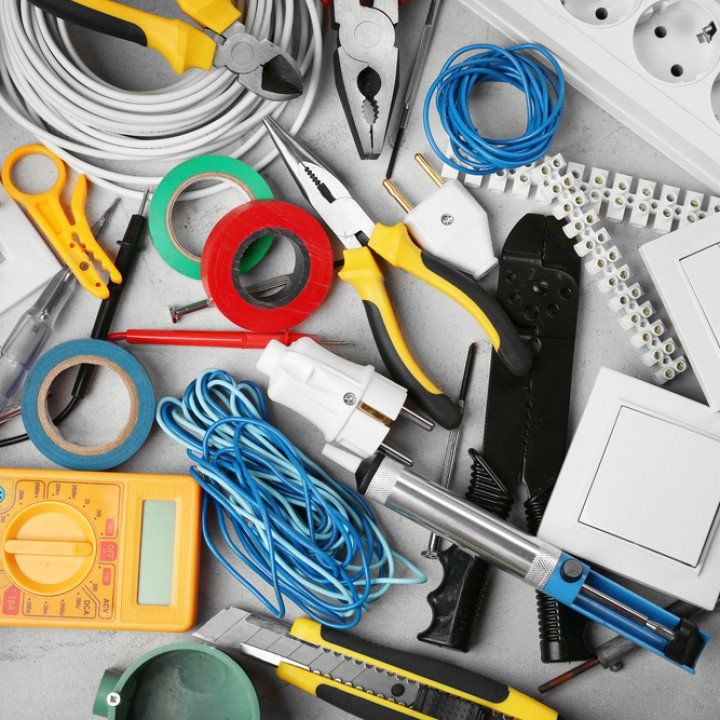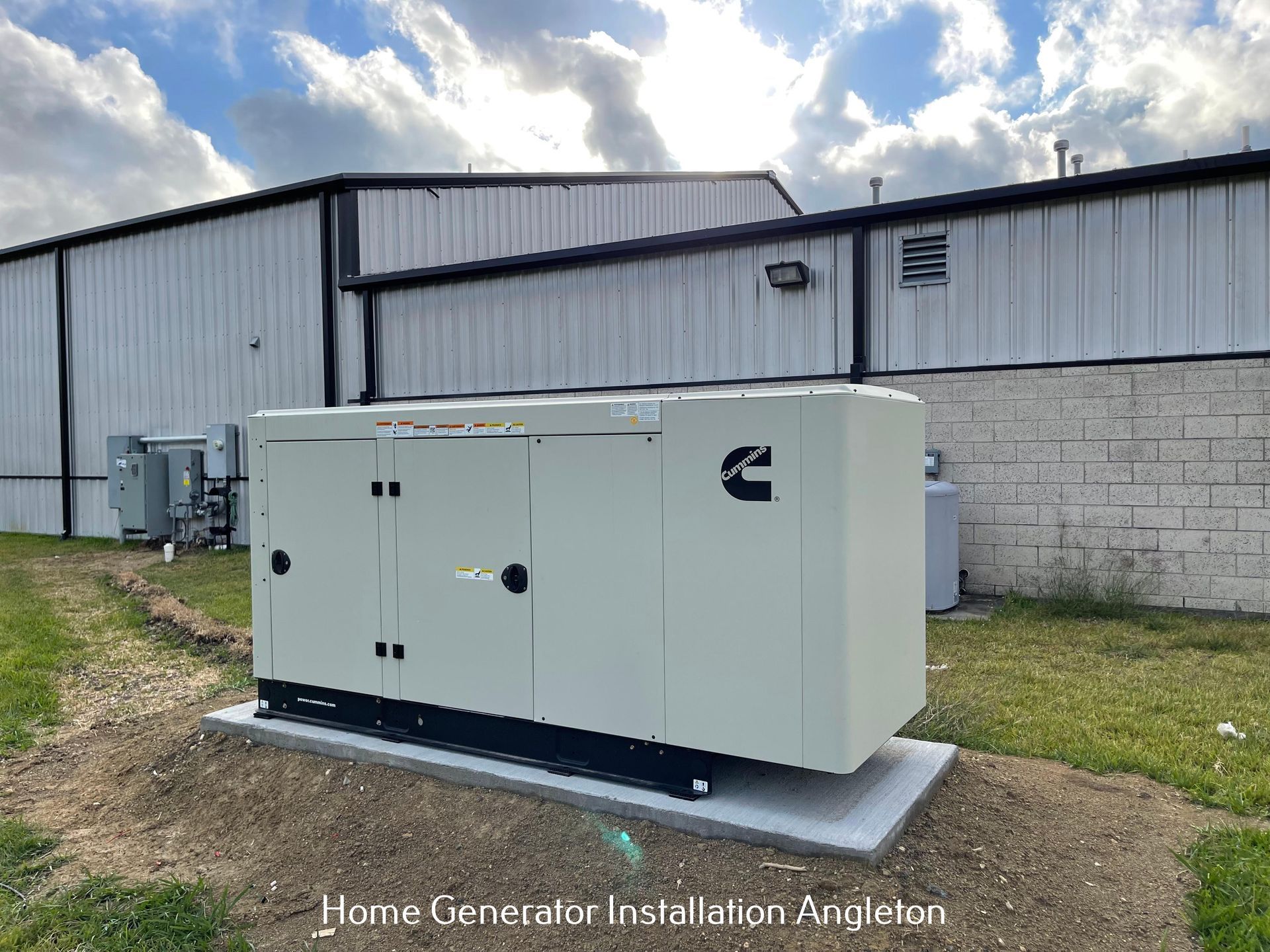Common Electrical Problems and How to Avoid Them
Common Electrical Problems and How to Avoid Them
Electricity is an essential part of our day-to-day lives, powering everything from our lights to our kitchen appliances. However, electrical issues are a frequent occurrence in many households. These problems range from minor inconveniences such as flickering lights to more serious issues like electrical fires, which can pose a significant risk to the safety of our homes and families. Therefore, homeowners must have a basic understanding of common electrical problems, their causes, and how to prevent them.
The importance of understanding and preventing common electrical problems cannot be overstated. Electrical problems not only disrupt our everyday routines, but they can also lead to costly repairs and, in severe cases, even fire hazards. By being informed about the common
electrical issues that can arise, homeowners can take proactive steps to prevent these problems from happening in the first place. This not only saves time and money but also ensures the safety and comfort of everyone living in the home.
Frequent Circuit Breaker Tripping
The next common electrical problem that many homeowners encounter is the frequent tripping of the circuit breaker. A circuit breaker is a vital part of your home's electrical system; it's designed to switch off, or 'trip', when it detects an overload or short circuit. This safety measure prevents wires from overheating and potentially causing a fire.
Reasons for Frequent Circuit Breaker
Common reasons for frequent circuit breaker trips include overloaded circuits, short circuits, and ground faults. Overloaded circuits occur when you're drawing more power than the circuit can handle. This is often due to using too many high-powered appliances at once. Short circuits are more serious, caused by a hot (live) wire touching a neutral wire. These can lead to dangerous situations if not addressed immediately. Ground faults, similar to short circuits, happen when a hot wire touches a ground wire or something grounded like a metal outlet box.
Preventing Circuit Breaker Tripping
While frequent trips can be annoying, they are a sign that your circuit breaker is doing its job of protecting your home. However, repeated tripping indicates a problem that should be addressed. To prevent circuit breaker tripping, avoid overloading your circuits. Be mindful of how many high-powered appliances you're using at once. If necessary, spread these appliances out among different circuits. Regularly check your wiring for any signs of damage or wear. If you notice frequent short circuits or ground faults, it's time to call a professional. Understanding the cause of the trips can help you address the issue and prevent potential electrical hazards.
Overloaded Outlets
Plugging too Many Electrical Appliances
Moving on from the issue of frequent circuit breaker tripping, another common electrical problem homeowners face is overloaded outlets. Understanding the concept of overloaded outlets and their potential dangers is crucial in maintaining a safe and efficient home electrical system. An overloaded outlet occurs when you plug too many electrical appliances into the same outlet, socket, or power strip. This can lead to overheating, which in turn can cause an electrical fire. The danger lies not just in the potential damage to your home, but also in the risk of severe injuries to the inhabitants.
Signs of an Overloaded Outlet
To identify signs of an overloaded outlet, look for clues such as frequently blowing fuses or tripping circuit breakers. Other signs can be as straightforward as a discolored or warm outlet, buzzing sounds, burning smells, or even sparks. If you notice any of these signs, it's essential to take immediate action to rectify the problem.
Steps that Help You Avoid Overloading Outlets
Avoiding overloaded outlets is a matter of being mindful and strategic about how you utilize your home's electrical outlets. Here are a few steps to help you avoid overloading outlets. First, don't plug multiple power-demanding appliances into the same outlet or power strip. Spread your appliances out among several outlets. Second, consider hiring a licensed electrician to install more outlets in your home if you find you're consistently running out of places to plug in your devices. Finally, make use of surge protectors to safeguard your appliances during power surges. However, remember that while surge protectors can help prevent damage to your devices, they don't increase the amount of power an outlet can handle.
In conclusion, overloaded outlets are a common electrical issue that can lead to dangerous consequences if not addressed. By understanding the signs and taking steps to prevent overloading, you can maintain a safer and more efficient electrical system in your home.
Inadequate Wiring
Following the exploration of overloaded outlets, another common electrical problem homeowners encounter is inadequate wiring. This issue often stems from outdated or subpar wiring systems that can't bear the electrical load of modern homes. Inadequate wiring typically manifests itself through dimming or flickering lights, frequently tripped breakers or outlets that cease to work. While these signs may seem minor, they can be indicative of a more significant issue.
The Risks Involved With Inadequate Wiring
The risks involved with inadequate wiring are serious and can't be ignored. Poorly wired systems can lead to electrical fires, posing a major threat to the safety of your home and loved ones. Apart from the fire risk, inadequate wiring can also damage your expensive appliances, cause electrocution, or increase your electricity bills due to inefficient power use. Preventing and solving inadequate wiring problems requires vigilance and proactive measures. Regular home electrical inspections by a licensed electrician can help identify potential problems before they escalate.
If you're living in an older home, consider upgrading your wiring system to accommodate your current electrical needs. When purchasing new appliances, ensure they are compatible with your home's electrical capacity to avoid overloading. If you're experiencing frequent electrical issues, it might be time to call in a professional to assess your system and make necessary upgrades. Remember, dealing with electrical issues is not a DIY task – safety should always be your utmost priority.
Faulty Light Switches
The Reasons Behind These Malfunctions
Following inadequate wiring, another typical electrical issue many homeowners face is faulty light switches. The reasons behind these malfunctions can vary, ranging from poor installation to internal wiring issues and outdated switch mechanisms. Often, these switches are installed during the initial construction of the home and can wear out over time. Recognizing faulty light switches is crucial to maintaining a safe and functional electrical environment in your home. Some common signs of a problematic light switch include flickering lights when the switch is turned on, a switch that feels warm or hot to touch, or a switch that doesn't function at all. Sometimes, you might also notice a buzzing sound, which could indicate a severe internal electrical issue.
Preventing and Dealing with Faulty Light Switches
Preventing and dealing with faulty light switches can be as simple as regular maintenance and timely replacement. It's essential to periodically check switches for any signs of wear and tear or unusual functioning. If a problem is detected, it's best to replace the entire switch rather than attempt a repair. It's also recommended to hire a professional electrician to handle these replacements to ensure they are done safely and correctly. Despite the temptation to handle these issues yourself, remember that dealing with electricity can be dangerous. Always prioritize safety and reach out to professionals when in doubt.
Flickering Lights
Flickering lights in your home or office are more than just a nuisance; they could be a sign of a more serious electrical problem. The reasons for flickering lights typically fall into three categories: loose bulbs, voltage fluctuations, or issues with the light fixture itself. Sometimes, the problem is as simple as a bulb that needs tightening. Other times it can be due to a more complicated issue like an overloaded circuit or faulty wiring.
Impact on Your Electrical System.
Flickering lights can negatively impact your electrical system in several ways. They may indicate that your system is overloaded and straining to meet demand, which can lead to more significant issues like damage to your appliances or even electrical fires. Furthermore, voltage fluctuations that cause flickering lights can also degrade the lifespan of your bulbs, leading to more frequent replacements and increased costs over time.
Fixing Flickering Lights
To avoid and fix flickering lights, start by checking the bulb. If it's loose, simply tighten it. If the flickering persists, try replacing the bulb to rule out the possibility of a defective bulb. However, if the issue continues after replacing the bulb, it's likely a sign of a more serious problem like faulty wiring or an overloaded circuit. In such cases, it's best to consult a professional electrician. DIY fixes can lead to inadequate solutions and even exacerbate the problem.
The Importance of Regular Maintenance
As with faulty light switches, regular maintenance is key to preventing and resolving flickering lights. Have your electrical system inspected by a professional electrician regularly to identify potential issues before they become serious problems. Remember, safety should always be your priority when dealing with electrical issues.
High Electricity Bills
Moving on from the issue of flickering lights, another common electrical problem that homeowners often encounter is high electricity bills. This issue can be caused by a variety of factors, the most prevalent ones being the overuse of appliances, inefficient appliances, lack of maintenance, and poor insulation. The constant use of energy-hungry appliances such as air conditioners, heaters, and refrigerators can significantly increase your electricity consumption. Furthermore, old or faulty appliances can consume more electricity than necessary, leading to increased costs.
How to Effectively Combat the Problem of High Electricity Bills
To effectively combat the problem of high electricity bills, adopting a few practical tips can result in substantial savings. Firstly, consider making a habit of turning off appliances and lights when not in use. Secondly, regular maintenance of appliances can help in identifying and fixing any issues that may potentially lead to increased energy consumption. Lastly, the insulation of your home plays a crucial role in maintaining a comfortable temperature, thereby reducing the need for constant heating or cooling.
Energy-Efficient Appliances
The significance of energy-efficient appliances in reducing electricity bills cannot be overstated. These appliances are designed to use less energy for the same function, resulting in less energy consumption and lower electricity bills. While the upfront cost of energy-efficient appliances may be higher, the long-term savings on electricity bills can make them a more cost-effective choice.
In conclusion, high electricity bills are a common problem that can be effectively managed by adopting energy-saving habits, performing regular appliance maintenance, and investing in energy-efficient appliances. Remember, the key to avoiding such electrical problems is being proactive rather than reactive.
Electrical Shocks
Understanding the Cause of Electrical Shocks
Moving on from the issue of high electricity bills, another prevalent problem that many homeowners face is electrical shocks. Understanding the cause of these shocks is the first step towards preventing them. Electrical shocks often occur when the flow of electrical current is interrupted, typically when a person comes into direct contact with an electrical energy source. This could be due to faulty appliances, bad wiring, or even improper use of electrical devices. The severity of these shocks can vary greatly, from a small jolt that causes little more than discomfort, to a severe shock that could potentially cause serious injury or even be fatal.
Preventing Electrical Shocks
Preventing electrical shocks is paramount for safety in the home. The most effective method of prevention is to ensure all your electrical installations and appliances are installed, maintained and used correctly. Regular checks and maintenance of your electrical system by a professional electrician are a necessity.
Additionally, always ensure to unplug appliances when they are not in use, and avoid touching any electrical device with wet hands or while standing on a wet surface. In the unfortunate event that you experience an electrical shock, knowing what to do can be lifesaving. The first step is to disconnect
the source of electricity if it is safe to do so or move away from the source using a dry, non-conductive object made of cardboard, plastic, or wood. Immediately following an electrical shock, seek medical attention, even if you feel fine. Electrical shocks can cause internal injuries that may not be immediately apparent.
Conclusion
As we conclude our discussion on common electrical problems and how to avoid them, it is important to reemphasize the significance of electrical safety. Electricity, while a vital resource in our daily lives, can pose serious risks if not handled with caution. Faulty appliances, bad wiring, or improper use of electrical devices can lead to dangerous situations such as electrical shocks.
To mitigate these risks, preventative steps such as ensuring correct installation and use of electrical devices, and regular checks and maintenance of your electrical system are crucial. However, despite these precautions, if an electrical issue arises, it is highly recommended to seek professional help. While DIY approaches may seem cost-effective, handling electrical problems without the right expertise can lead to further complications and even pose a risk to personal safety. A
licensed electrician has the knowledge and skills to diagnose and fix the problem safely and efficiently.
In conclusion, while common electrical problems can be daunting, they are largely preventable through regular maintenance and safe usage practices. And in the event of a problem, professional help is just a call away. Remember, safety should always be your priority when dealing with electricity. It's better to be safe than sorry. Explore common electrical problems and learn how to avoid them with Strategic Electrical Solutions, LLC. Our expert team is dedicated to providing proactive solutions for a safe and efficient electrical system in your home or business.
Name, Address, and Phone
Strategic Electrical Solutions, LLC
23111 Harris Dr, Angleton, Texas, 77515, US
(979) 612-2496
Social Media’s
https://www.facebook.com/profile.php?id=100090600199683







